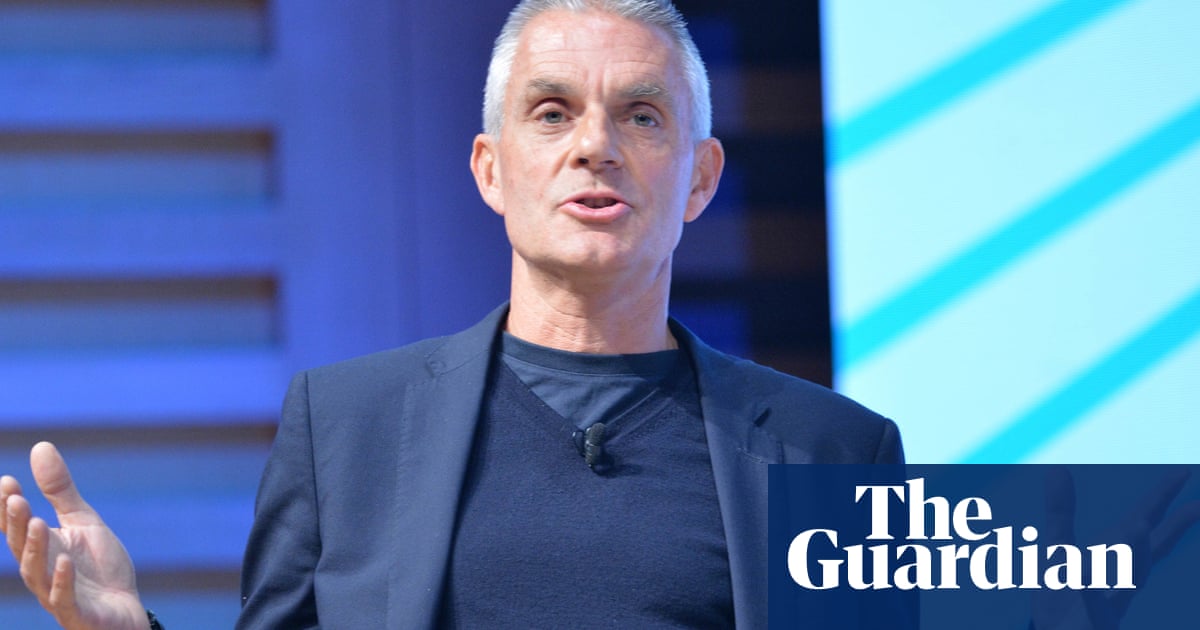Britain’s status as a cohesive, democratic society is at risk for the first time in a generation as the rise of social media platforms and disinformation fuel a “trust crisis”, the BBC’s director general has said.
In a wide-ranging address about the future of the corporation,Tim Daviesaid BBC News would start to make special content for platforms such as YouTube and TikTok, where disinformation can go unchecked, as he couched the broadcaster as a “precious national asset” preventing the UK from becoming a society in which there were no shared facts.
“The future of our cohesive, democratic society feels for the first time in my life at risk,” Davie said in a speech in Salford. “I don’t want to catastrophise. We have so much to be proud of in the UK: our tolerance, our innovative spirit, our creativity, our humour, our sense of fairness. But I think that unless we act, we will drift, becoming weaker, less trusting, less competitive.”
In a rapidly changing media world in whichless than half of young people watch live TV each week, Davie said the days of the “old priesthood” of broadcasters deciding and controlling what information people consumed were over. However, he said that it had meant “disinformation is thriving”.
“There is no doubt that this new age is fostering polarisation and threatening communal trust and putting more power in the hands of global social media platforms,” he said. “We see profound changes in people’s trust in the information that they receive … Many feel there is no agreed backbone of facts upon which to base constructive deliberation.
“Those we disagree with become enemies, not friends who think differently. Empathy withers without understanding.”
Davie’s address in effect served as the first major salvo in lengthy talks over how the BBC will be changed as its charter is up for renewal. With the future of the licence fee continuing to be in question, Davie pitched the BBC as a rare unifying force.
He revealed plans to “dramatically increase” the amount of BBC News content on YouTube and TikTok, both of which were platforms where disinformation could flourish, he said. He said the BBC was “not being dragged there”, but wanted to reach the audiences using the platforms.
He said: “In the election, we found enormous numbers of young people coming to [BBC Verify] factcheckers because they were just confused. We think [putting] things like that into YouTube will be very powerful.”
However, after the Guardian revealed that the BBC had been asked byministers to draw up cuts to the World Service, Davie issued a direct challenge to the government – instead demanding “hundreds of millions” more to boost the World Service at a time when Russia and China alone are spending billions on their state-run media channels, designed to influence world opinion.
“When it comes to funding the World Service, we do need help,” he said. “There’s never been a more important time to invest in this priceless national asset. We believe the UK should be ambitious about its future, and the government should invest for significant growth, not survival … We’ve got to make a decision as a country, are we in this game or not?”
While he maintained that turning the BBC into a subscription service or one supported by advertising revenue were his red lines in talks with ministers, he suggested that a universal licence fee could be renamed, modernised or adapted.
It suggests the BBC may be looking at whether wealthier households could pay more. “We keep an open mind and we continue to actively explore all options that can make our funding model fairer, more modern and more sustainable,” he said.
After theGuardian highlighted the crisis inside the TV industry, Davie also backed greater tax breaks for vulnerable areas of television.
He expressed his disapproval about a social media post briefly shared by Gary Lineker on Instagram that was labelled “Zionism explained in two minutes” and featured an illustration of a rat – historically used as an antisemitic insult and used in Nazi Germany to characterise Jews.
“The BBC’s reputation is held by everyone and when someone makes a mistake, it costs us,” he said. “I think we absolutely need people to be exemplars of the BBC’s values and follow our social media policy. Simple as that.”
